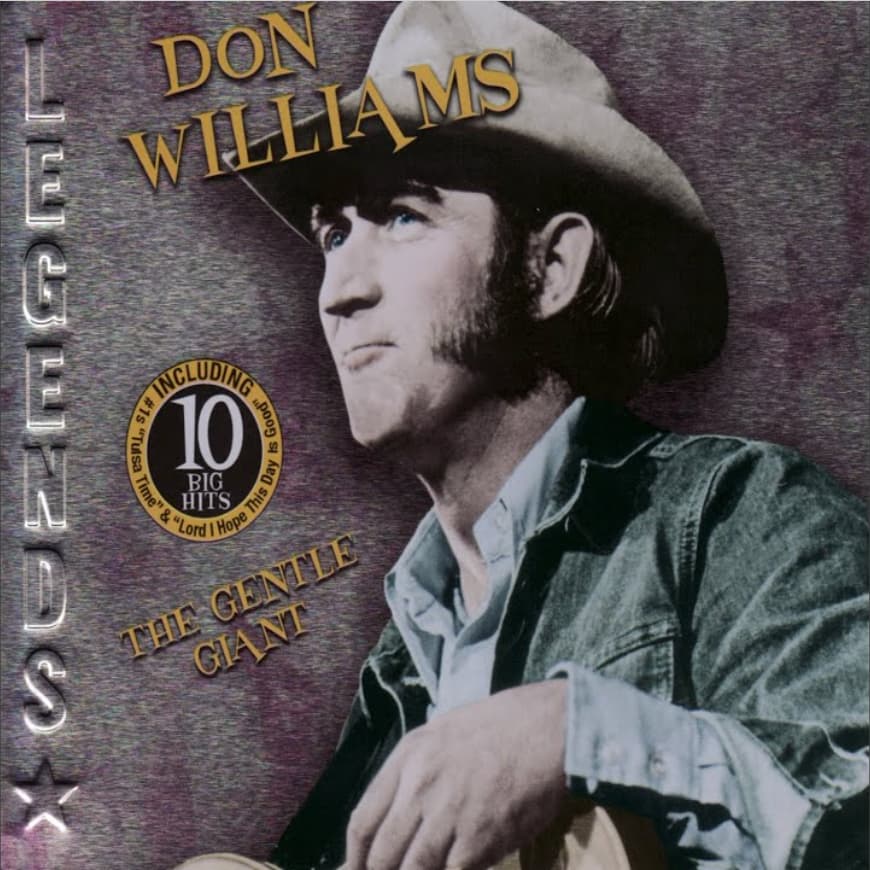
Don Williams – Lord, Have Mercy on a Country Boy: A Mellow, Heartfelt Farewell to the Wild and Free American Landscape
When a certain generation—our generation, if I may be so bold—hears the opening bars of Don Williams’ “Lord, Have Mercy on a Country Boy,” a deep sigh often follows, not of sadness, but of recognition. It’s the sound of remembering a world that seems to be slipping further away with every passing year, captured perfectly in the gentle, unhurried voice of “The Gentle Giant.” Released in 1991 from his album True Love, this song wasn’t just another hit; it was, quite fittingly, Don Williams’ final Top 10 single, peaking at No. 7 on the Billboard Hot Country Songs chart. What a profound and reflective note to cap off a quarter-century of chart dominance—a quiet prayer whispered at the close of a remarkable era.
The power of this song, and indeed of so much of the music we hold dear, stems from the collaboration between a great singer and an equally great writer. The pen behind this melancholic masterpiece belonged to the legendary Bob McDill, a man who seemingly specialized in articulating the quiet dignity and internal turmoil of the common person. McDill didn’t write about superheroes or dramatic conquests; he wrote about the cost of living, the value of a simple heart, and, in this case, the pain of seeing your home disappear beneath asphalt and concrete.
Williams was the perfect vessel for this lament. His warm, resonant baritone never rushed a phrase. He didn’t shout or strain; he simply offered the truth with an almost calming certainty, like a friend laying a hand on your shoulder. That quiet dignity is essential to the meaning of “Lord, Have Mercy on a Country Boy.” The protagonist is not an angry man; he’s a man in mourning. He’s grieving the loss of a life defined by freedom: “I grew up wild and free, walkin’ these fields in my bare feet / There wasn’t no place I couldn’t go, with a twenty-two rifle and a fishing pole.” For those of us who remember a time when our own landscapes felt boundless and unspoiled, that stanza is less a lyric and more a memory we share.
The emotional core of the song, however, hits hardest in the moment of contrast—the brutal realization that progress has a cost that can’t be measured in dollars. McDill uses vivid, heartbreaking imagery to tell the story of environmental and spiritual destruction: “Well they dammed the river, they dammed the stream / They cut down the cypress and the sweet-gum trees / There’s a Laundromat and a barbershop / And now the whole meadow is a parking lot.” That final line—“the whole meadow is a parking lot”—is a punch to the gut for anyone who cherishes the sight of open land. It’s the sound of the frontier closing forever, replaced by the mundane utility of suburbia.
And so, the protagonist finds himself in a kind of internal exile, an alien in his own land: “I live in the city but don’t fit in, / You know it’s a pity the shape I’m in.” The prayer for mercy in the chorus is not an appeal for money or success, but for the soul of a man whose heart remains rooted in dirt and nature, forced to navigate steel and glass. For older readers, this song resonates so deeply because it mirrors our own reflections on the speed of change. We, too, look back at the fields, the quiet streets, and the sense of community that the relentless march of time seems to have paved over.
Don Williams’ gentle recording, produced by Garth Fundis, perfectly captures this melancholy. The unhurried pace, the steel guitar weeping softly behind the melody, and Williams’ unwavering sincerity turn a simple country song into a reflective hymn. It is a timeless piece, a quiet plea that, even after all these years, serves as a beautiful, bittersweet reminder that some things—like the purity of a country soul—simply cannot be bought, sold, or adequately confined by the limits of a modern city. The fact that it was his last major chart success makes it feel like his final, graceful benediction to a grateful audience.